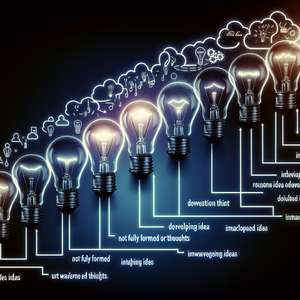Transforming Workplaces with Empathy in Diversity and Inclusion Consulting

Empathy, in the context of diversity and inclusion, transcends mere understanding or acknowledgment of differences; it is the ability to deeply comprehend and share the feelings of others, particularly those from varied backgrounds. For diversity and inclusion consultants, empathy is not just a desirable quality but a strategic imperative. By prioritizing empathy, consultants can foster trust, encourage open dialogue, and create safe spaces where all employees feel valued and heard. This emotional intelligence allows consultants to tailor interventions that resonate with employees on a personal level, thus promoting a more inclusive organizational culture.
Real-Life Examples of Empathy in Action
1. Implementing Empathetic Leadership Training: A prominent example of empathy-driven D&I consulting can be found in a large tech company that faced significant diversity challenges. To address these issues, the organization engaged a consultancy that introduced an empathetic leadership training program for its managers. This program emphasized active listening and understanding the perspectives of employees from underrepresented groups. By sharing personal stories and experiences, managers gained insights into the unique challenges faced by their teams. The initiative resulted in a remarkable 25% increase in employee satisfaction scores and a noticeable decrease in turnover rates, reflecting the positive impact of empathetic leadership on organizational morale. 2. Creating Safe Spaces for Dialogue: In another instance, a financial services firm worked with consultants to facilitate “listening circles” among employees. These circles served as safe spaces where individuals could openly share their experiences related to race, gender, and other identities without fear of judgment. The empathy demonstrated by both facilitators and participants cultivated a culture of openness and understanding. This initiative allowed the organization to identify specific barriers to inclusion, leading to the implementation of targeted strategies to address these challenges. As a result, the firm experienced a more cohesive workplace culture characterized by mutual respect and collaboration. 3. Empathy-Driven Recruitment Processes: A mid-sized manufacturing company sought to revamp its recruitment strategy with the help of D&I consultants. Recognizing the detrimental effects of bias in hiring, the consultants introduced an empathetic approach to the recruitment process. This approach trained hiring managers to evaluate candidates not only based on qualifications but also on the potential contributions of applicants from diverse backgrounds. As a result, the company saw a significant increase in the diversity of its applicant pool, ultimately hiring several candidates who brought unique perspectives and skills to the team. This infusion of diversity enhanced innovation and creativity within the organization.
The Impact of Empathy on Organizational Culture
The integration of empathy into diversity and inclusion consulting has profound implications that extend beyond immediate outcomes. When organizations prioritize empathy, they create an environment where employees feel understood and valued, fostering a culture of belonging. Employees who experience this sense of belonging are more likely to be engaged, productive, and committed to their organization. Moreover, an empathetic workplace culture enhances collaboration and creativity, which are essential drivers of business success. Research has shown that diverse teams that feel included are more innovative and capable of generating creative solutions to complex problems.
As organizations navigate the complexities of diversity and inclusion, the importance of empathy in consulting cannot be overstated. By embracing empathy as a cornerstone of their strategies, diversity and inclusion consultants can transform workplaces into environments that celebrate differences and promote belonging. The real-life examples presented in this article illustrate that empathy is not merely an emotional response but a strategic tool that leads to enhanced organizational performance and innovation. In a world where the workforce is increasingly diverse, organizations that prioritize empathy will not only thrive but also set a standard for others to follow, paving the way for a more inclusive and equitable future in the workplace. As we move forward, it is imperative for companies to recognize the role of empathy in their D&I initiatives—not just as a means of compliance but as a transformative force that can redefine organizational culture and drive success.
Diversity and Inclusion Consultant
Large corporations, consulting firms (e.g., Deloitte, McKinsey), and non-profits
Core Responsibilities
Assess organizational culture and develop tailored D&I strategies.
Facilitate workshops and training sessions focused on empathy and inclusion.
Analyze data related to diversity metrics and recommend actionable improvements.
Required Skills
Strong understanding of D&I principles and practices, particularly empathetic leadership.
Exceptional communication and interpersonal skills to foster trust and collaboration.
Experience in conducting focus groups or listening sessions to gather employee feedback.
Employee Engagement Specialist
HR consulting firms, large enterprises, and tech companies
Core Responsibilities
Design and implement programs that promote employee satisfaction and inclusivity.
Conduct surveys and analyze feedback to identify areas for improvement.
Collaborate with leadership to create initiatives that enhance workplace culture.
Required Skills
Knowledge of employee engagement strategies and metrics.
Proficiency in data analysis to assess the effectiveness of engagement initiatives.
Strong facilitation skills to lead discussions and workshops on engagement.
Talent Acquisition Specialist with a Focus on Diversity
Corporations with active D&I programs, government agencies, and staffing agencies
Core Responsibilities
Develop recruitment strategies that prioritize diverse candidate pools.
Implement bias-reduction training for hiring managers to ensure equitable practices.
Partner with external organizations to attract underrepresented candidates.
Required Skills
Expertise in recruitment and selection processes, with an emphasis on D&I.
Strong networking skills to build relationships with diverse communities and organizations.
Familiarity with applicant tracking systems and diversity hiring metrics.
Organizational Development Consultant
Consulting firms, large organizations, and educational institutions
Core Responsibilities
Assess organizational effectiveness and recommend strategies for improvement.
Develop training programs that incorporate empathy and emotional intelligence.
Facilitate change management initiatives to enhance inclusivity within teams.
Required Skills
Strong background in organizational psychology or related fields.
Proven experience in facilitating workshops and training sessions.
Ability to analyze organizational culture and identify gaps in inclusion.
Corporate Social Responsibility (CSR) Manager
Fortune 500 companies, non-profit organizations, and social enterprises
Core Responsibilities
Develop and oversee CSR initiatives that promote diversity and community engagement.
Collaborate with internal teams to align CSR strategies with organizational values.
Measure and report on the impact of CSR initiatives on diversity and inclusion.
Required Skills
Strong project management skills to oversee multiple CSR initiatives simultaneously.
Excellent written and verbal communication skills for reporting and presentations.
Understanding of social justice issues and their impact on communities.


